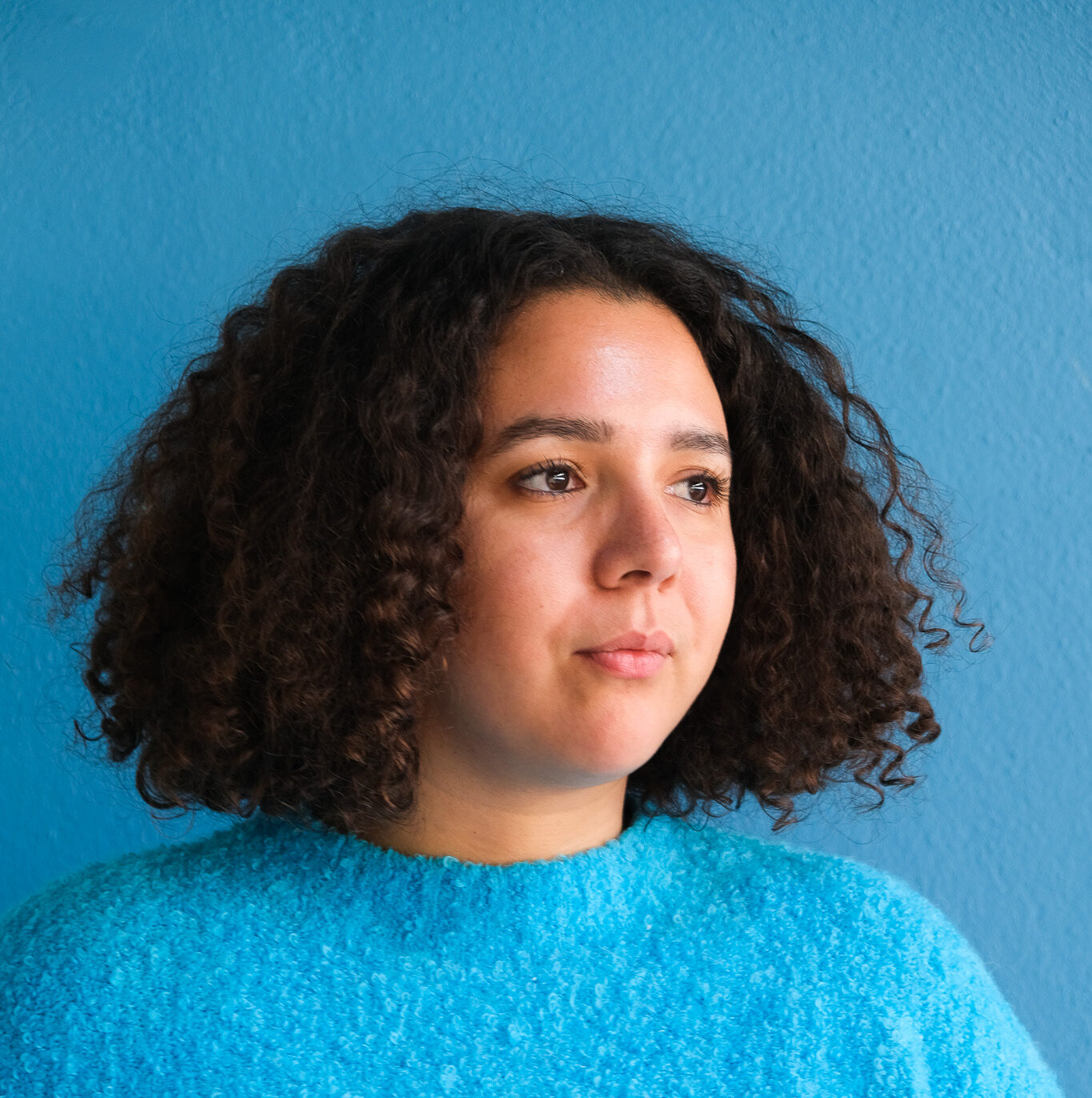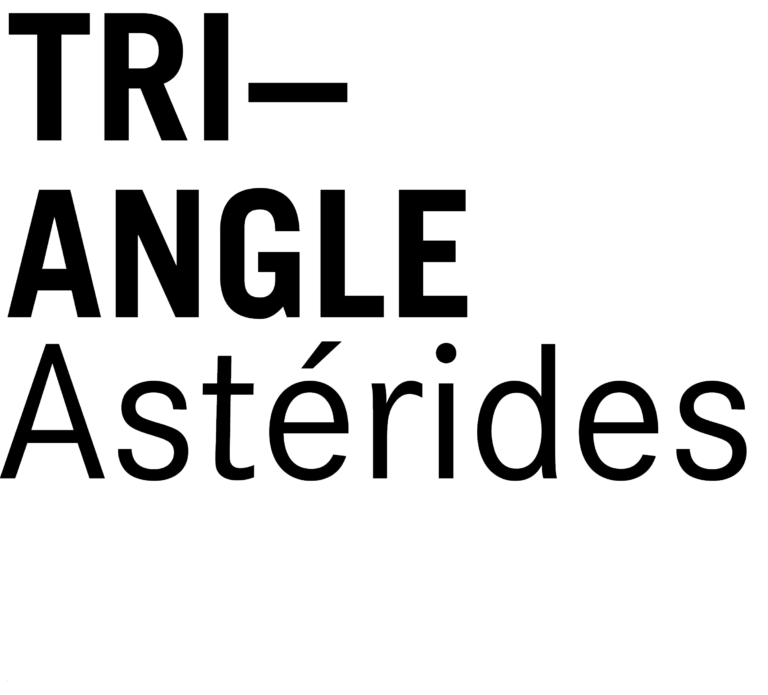Lydia Amarouche
Publisher, Curator
March - May 2024

- Literature
- Atlanta
- Los Angeles
- New York
“This residency comes amid a censorship movement targeting libraries and schools across the US. How are authors and publishers reacting? How might this be influencing literary and publishing production in the US?”
I am an editor and curator guided by the exploration and application of sociological investigative tools. My career has led me to consider books as a means of encounter and exchange, where the various stages of the editorial process come to life and become sensitive for the public. I organize workshops, exhibitions, collective readings, writing residencies, reading rooms and festive events, which enrich the reflections sparked by each editorial project.
In 2019, I have initiated a traveling cycle of arpentage, a collective reading method inspired by the labor union culture and popular education movements of the 1950s. Surveying consists in cutting a book into several parts, with each participant then sharing his or her understanding with the rest of the group to collectively apprehend the book. This approach allows us to shift the question of knowledge and experience the power of the collective, challenging traditional methods of education. These workshops fueled my interest in creating spaces for mutual learning, and guided me in 2020 towards the creation of a publishing house and artistic platform, Shed publishing.
Lydia Amarouche, editor and curator based in Marseille, graduated from the École normale supérieure in sociology, anthropology and history. She explores various archival documents to create editorial, exhibited or performed investigations. In 2019, she launches Corpus, a cycle of collective readings open to the public, addressing colonial history, queer and feminist issues, the prison system, pedagogy and art. In 2020, she founded Shed publishing, an editorial and artistic platform publishing essays on social and political criticism, as well as children’s literature. She also teaches at the University of Aix-Marseille.
For the Villa Albertine, I began research into editorial and literary practices of resistance, with a particular interest in initiatives that mobilize books as a medium and a tool for political and popular education. I met people who run publishing houses, reading rooms, book clubs, independent libraries, cooperatives and all forms of collective organization that play a significant role in the dissemination of books and the transmission of common knowledge.
As a publisher, I’m particularly attentive to approaches that displace the classic relationships between author, publisher and reader, and see book projects as collective experiences. For me, alternative literary spaces are an inexhaustible source of inspiration, which is why I went to meet literary, activist and artistic communities in order to reflect on the culture of the book club and collective reading, and the alternative sociabilities they engender. These educational and playful spaces play a crucial role in disseminating knowledge and culture within minority communities. I explored their history, their impact, and the forms they take in the current political context.
The residency took place at a time of censorship in libraries and schools across the U.S., with targeted campaigns to remove books dealing with issues such as racism and gender identity. I was able to observe the self-organization of libraries, bookstores and independent venues in the face of these pressures.
My research project took me to three cities in the United States: Atlanta, New York and Los Angeles.
The starting point for my research in Atlanta was the bookshop and reading room For Keeps books, founded by artist Rosa Duffy. This space specializing in rare and classic books is described by its founder as an “interactive museum of black thought”. I met the lively community who frequent the place and bring it to life. During my stay I also spent some time at Yes, please, a bookhouse and carespace nestled in the neighboring town of Decatur. Founded by Lauren Jones, this suspended space is dedicated to the writings of black women.
In New York, I explored the richness of the publishing field. In particular, I spent time with the team at Wendy’s Subway, a reading room, library and literary venue located in Bushwick. I was able to talk to a number of book industry players about our collective work organization methods and financing systems.
Finally, in Los Angeles, I visited spaces such as the Radical Hood Library cooperative, the headquarters of the No Name Bookclub founded by rapper No Name. I learned about the Prison Program, where every two months the team sends to a network of incarcerated people across the country (over 1,300 people in more than 400 prisons) works of political theory and maintains a link with these people, via correspondence, or by calling on them at public events to read poems or give news.
The places I’ve visited – artistic, literary, archival – all have one thing in common: they make the issue of decarceration and prison abolition central to their work.
In partnership with

Triangle-Astérides
Triangle-Astérides is a center for contemporary art of national interest based in Marseilles at La Friche la Belle de Mai, a cultural cooperative located in a former tobacco factory, since 1994.
Triangle-Astérides articulates a rigorous program of exhibitions with research residencies for artists from international and French scenes outside Marseilles, Associate Artists from the local scene (complementarily with the Marseilles City Studios), to which are added events, editorial projects and a thorough outreach to all audiences.
Triangle-Astérides is part of international networks (notably the Triangle Network, which initiated the founding of Triangle-Astérides which remains a member while operating independently), as well as national and local networks (with the merger, in 2018, of Triangle France and Astérides). Connecting these different scales is at the heart of all its activities.
Mindful of each individual’s needs, Triangle-Astérides ensures, to the best of its ability, the accessibility of all its programs for the audience as well as for the invited artists (the building is accessible to persons with a disability; and upon request tours can be offered in French Sign Language and through audio description).
Triangle-Astérides’ communication elements are available in French and English (sometimes translated by professional translators, often translated into imperfect English by the team itself). Occasionally and upon request, our programs can also be translated into other languages.
Triangle-Astérides is a non-profit association supported by the Ministry of Culture – Drac Provence-Alpes-Côte-d’Azur, the City of Marseille, the South Region and the Bouches du Rhône Department. Its team is composed of four people; its board of five people including an artist.
